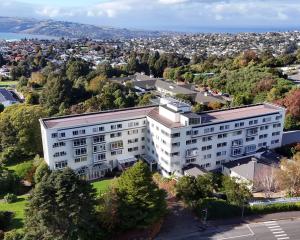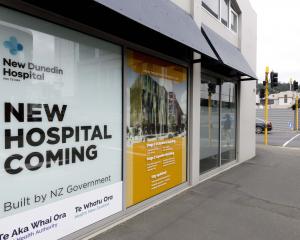Covid has caused Southern health authorities to cancel or defer more than 6000 procedures, including cardiac and ophthalmology work.
Outpatient appointments bore the brunt of Covid-related delays, as 5531 scans, appointments and minor operations have had to be deferred because staff and/or patients had caught Covid, were obliged to be in isolation or to care for ill family members.
Planned inpatient care, such as orthopaedic operations, also suffered disruption due to Covid — Te Whatu Ora Health New Zealand Southern (HNZS) had to put off 541 operations.
The 6072 total Covid cancellations from August 15, 2021, to June 30 this year ranked the Southern region seventh out of the 20 health regions (the former district health boards) — a position roughly equivalent to where Otago and Southland ranked in terms of overall Covid cases.
Of those, 331 were planned outpatient care, the second-highest in the country; and 2386 were other outpatient appointments, the fourth highest in the country.
Just over 2000 first specialist assessments or follow-ups had to be cancelled, as did 629 diagnostic scans, such as MRIs, CT scans or ultrasounds.
The data was contained in a table of data provided to National health spokesman Dr Shane Reti in response to a written parliamentary question.
The cancellations have added to HNZS’ already substantial waiting lists, which have become worse for many specialties in recent months.

Interim district director Hamish Brown said decisions to defer treatment were not taken lightly, but they were one of the ways the organisation could continue to provide safe care to those acute patients who needed it.
Unlike a handful of health regions, Southern did not cancel any acute procedures due to Covid.
Mr Brown said the decline in Covid cases was already flowing through to a reduction in severely ill people with the virus who might have needed hospital-level care during winter.
"This is helping to ease pressure on the health system.
"Additionally, with cases of influenza and other winter respiratory illnesses also signalling encouraging signs of a downward trend, we are hoping some of this pressure on the system will also start to ease," he said.
HNZS recently wrote to the directors of all health regions ordering them to ensure all people who had waited more than a year for either treatment or for a first specialist appointment, be booked in to be seen.
As of July 31, Southern had the third highest number of people awaiting a first specialist appointment (398) of the 20 health regions, and the most people who had waited for treatment for more than a year (856).
Earlier this week, a spokeswoman said it now had 331 people awaiting a specialist appointment and 587 people still awaiting surgery.
"Southern planned care which has been deferred includes orthopaedics, cardiac, surgery, general surgery, ear nose and throat, urology and ophthalmology," Mr Brown said.
"Southern is working hard to ensure our wait list numbers are reduced and planned care is booked in."












